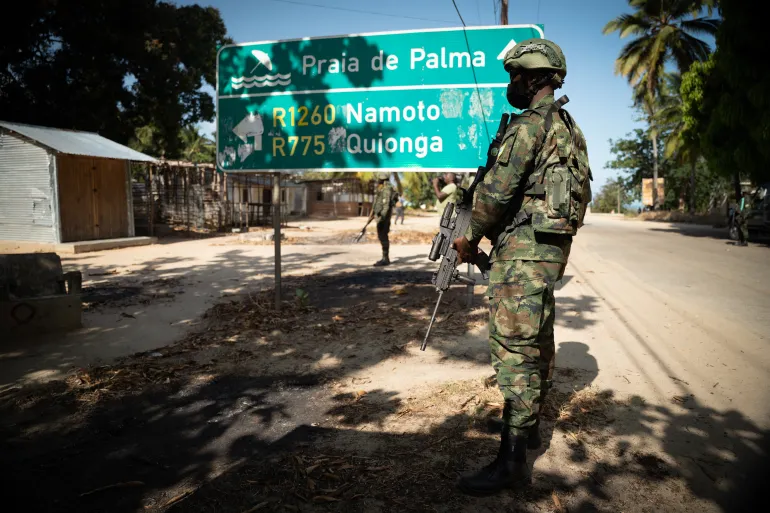
Cabo Delgado province in Mozambique stands as a stark example of the "resource curse," where abundant natural resources lead to strife rather than prosperity. The province harbors vast reserves of liquefied natural gas (LNG), but instead of bringing economic uplift, it has exacerbated an ongoing violent insurgency and deepened the suffering of local communities.
In Palma, a town on the northern tip of Mozambique, residents live in constant fear due to the insurgency. Awa Salama*, a local resident, recalls the harrowing day when gunfire and explosions signaled an approaching attack. Forced to flee with her children, she sought refuge in the wilderness, hiding for days before attempting to reach the Afungi facility, a site developed by TotalEnergies for LNG extraction. Despite waiting for hours with thousands of others, no escape was available, forcing Salama to find temporary shelter in Quitunda, a village constructed for those displaced by the gas development. Even three years later, she remains wary of discussing the conflict and the gas project, reflecting the pervasive fear among locals.
The discovery of significant natural gas reserves in 2009 by Texas-based Anadarko initially brought hope to one of Mozambique's poorest regions. The prospect of economic development was bolstered by substantial investments, including a $20 billion project by TotalEnergies. However, the reality for local communities has been harsh. The development has displaced numerous families, who were moved from their homes to make way for industrial infrastructure, including ports, airports, and gas processing facilities.
Since 2017, the region has faced violent insurgency from a group known as al-Shabab (unrelated to the Somali group). These insurgents, angry about being excluded from the region's newfound wealth, have launched brutal attacks, involving beheadings and abductions, as reported by Amnesty International. The violence has claimed over 6,000 lives and displaced a million people.
The presence of the LNG project has intensified the conflict, leading to increased military presence and complicating civilian life. In March 2021, al-Shabab captured Palma in a siege that left over 1,190 people dead, prompting TotalEnergies to suspend operations. The Afungi facility is now guarded by private security and a joint task force of the Mozambican military and police.

Salama's experience is indicative of the broader struggles faced by locals. After initially fleeing during the 2021 attack, she briefly returned home in 2022, hoping for stability. However, ongoing instability and threats forced her back to Quitunda. The conflict has also taken a personal toll, with three of her nephews disappearing, likely captured by insurgents.
The dual pressures of the LNG project and the insurgency represent a "double attack" on local livelihoods, as described by Julio Bicheche of the Farmers Union Cabo Delgado. Displaced families suffer not only from losing their homes but also from the continuous threat of violence. Despite heavy military deployment around the gas project, civilians continue to endure violence and displacement, feeling neglected by both the government and corporations.
In conclusion, Cabo Delgado's natural gas wealth has brought more hardship than benefit to its people. The ongoing violence and displacement highlight the urgent need for a comprehensive approach to address the region's humanitarian and security challenges. The international community and stakeholders must prioritize the well-being of local communities to ensure that natural resource wealth translates into genuine prosperity and stability.

















